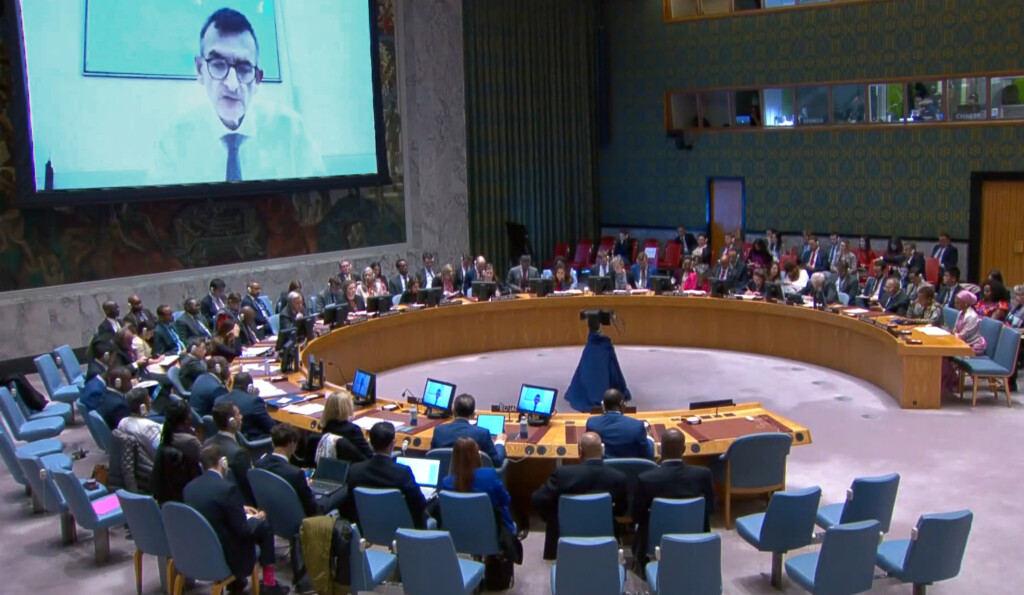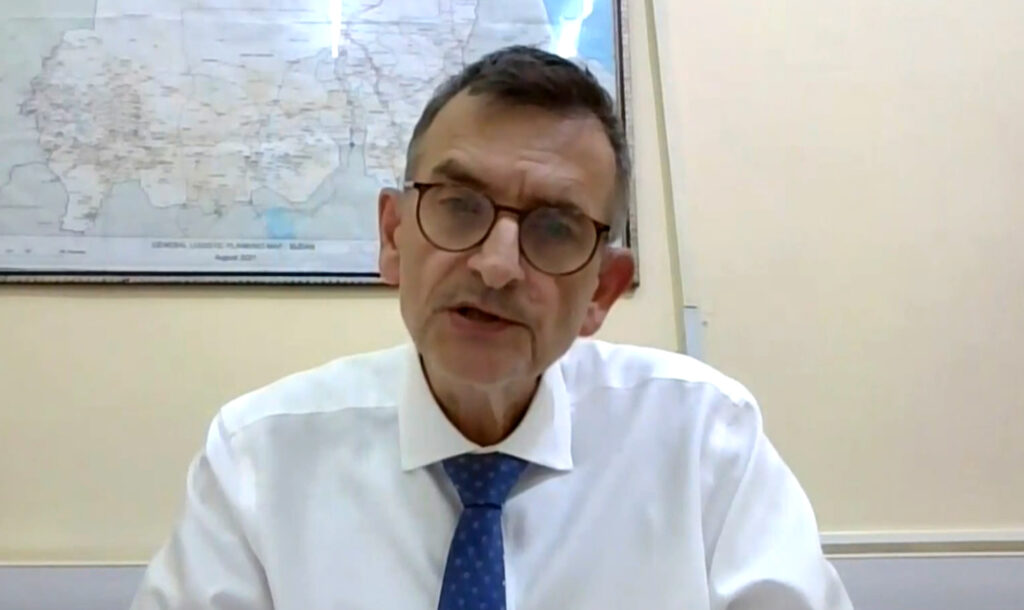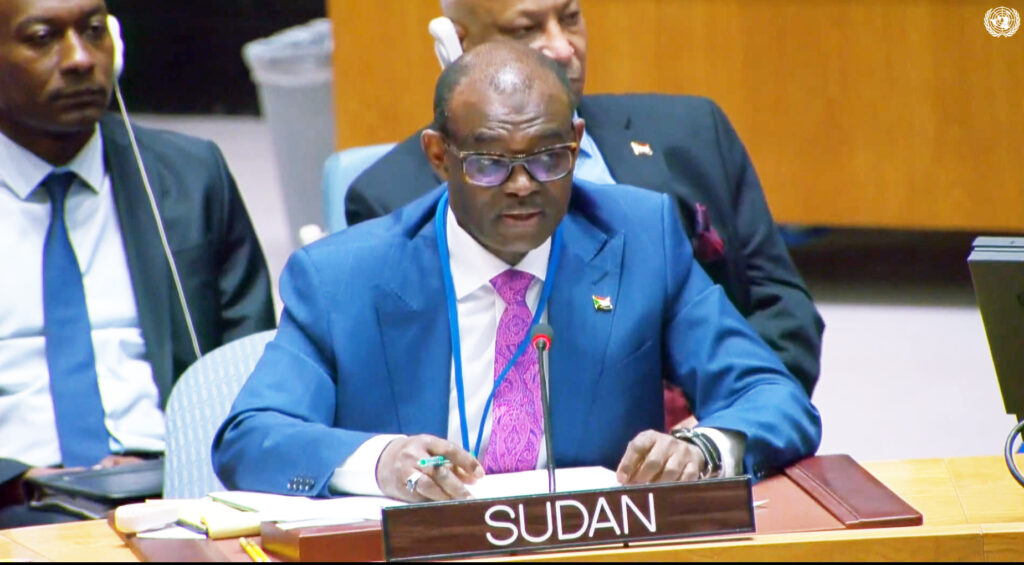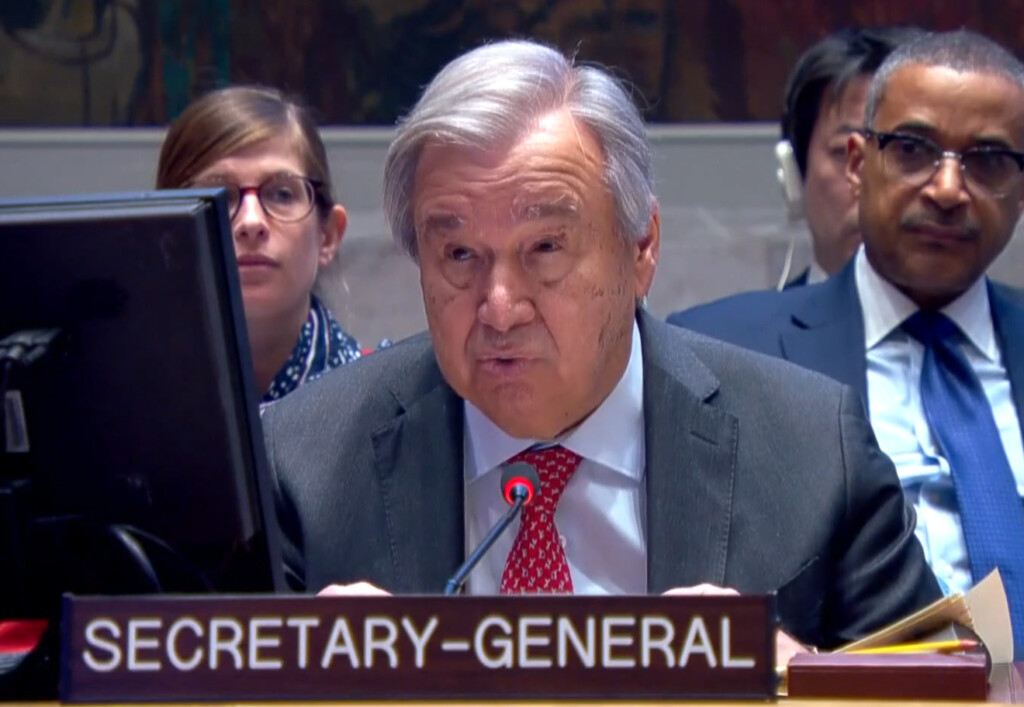UNSC call to end Sudan hostilities as humanitarian catastrophe deepens

NEW YORK –
Members of the international community have made urgent calls on the warring Sudanese Armed Forces (SAF) and Rapid Support Forces (RSF) to abide by their ceasefire agreement, and work with partners to stop the violence immediately.
Addressing a session of the UN Security Council (UNSC) convened to discuss the situation in Sudan on Tuesday, US Representative Linda Thomas Greenfield called for the formation of a committee to supervise negotiations between the two warring parties in Sudan, stressing the necessity of concluding and implementing a permanent cessation of hostilities.
Greenfield added d that the USA strongly supports the continuing diplomatic efforts to resolve the crisis in Sudan, and called on both parties to abide by their recent commitments to implement a 72-hour ceasefire, and to work with partners to stop the violence immediately.
Humanitarian catastrophe
Volker Perthes, the United Nations Special Representative, and head of the UN Integrated Transition Assistance Mission in Sudan (UNITAMS), told the UNSC that while the SAF and RSF have exchanged accusations of violating the ceasefire, civilians are bearing the brunt, and the fighting has caused a humanitarian catastrophe. Perthes underlined that residential areas adjacent to facilities controlled by the SAF and RSF have been subjected to continuous attacks, and that homes, shops, schools, water and electricity facilities, mosques, and hospitals have been damaged or completely destroyed.

Hemedti and El Burhan ‘not ready to negotiate’
Perthes says that while the current ceasefire “seems to be holding in some areas so far”, there is no indication that the two warring parties, respectively commanded by Lt Gen Abdelfattah El Burhan, versus Lt Gen Mohamed ‘Hemedti’ Dagalo, are ready to negotiate seriously, “which suggests that each of them believes that he can achieve a military victory on the other… these are miscalculations.”
UN staff killed
UN Secretary-General António Guterres has confirmed that at least 400 people have been killed during the current fighting in Sudan, including four United Nations employees. He also acknowledged the thousands who have been injured and tens of thousands who fled their homes.
Guterres highlighted that a third of the Sudanese population needed humanitarian assistance before the crisis, warning that the number would rise sharply after the past 10 days. The struggle for power in Sudan not only endangers the future of this country, but also ignites a fuse that may explode across the borders, stressing that the reports received from Khartoum paint a bleak picture of the situation there.
‘A military coup, not a civil war’

Sudan’s delegate to the United Nations, El Harith Idris, appealed to the UNSC not to characterise the current situation in Sudan as a civil war, but rather as the aftermath of an attempted coup d’état by the RSF.
Idris demanded that Sudan be given the opportunity to deal with regional proposals to resolve the crisis, and said that the priority of the African Union and neighbouring countries is to deal with what is happening in Sudan. He stressed that “what is happening in Sudan is an internal matter whose solution must be left to the Sudanese without external interference,” stressing that the Sudanese army “is trying to end the rebellion carried out by the RSF with the least possible losses”.












 and then
and then